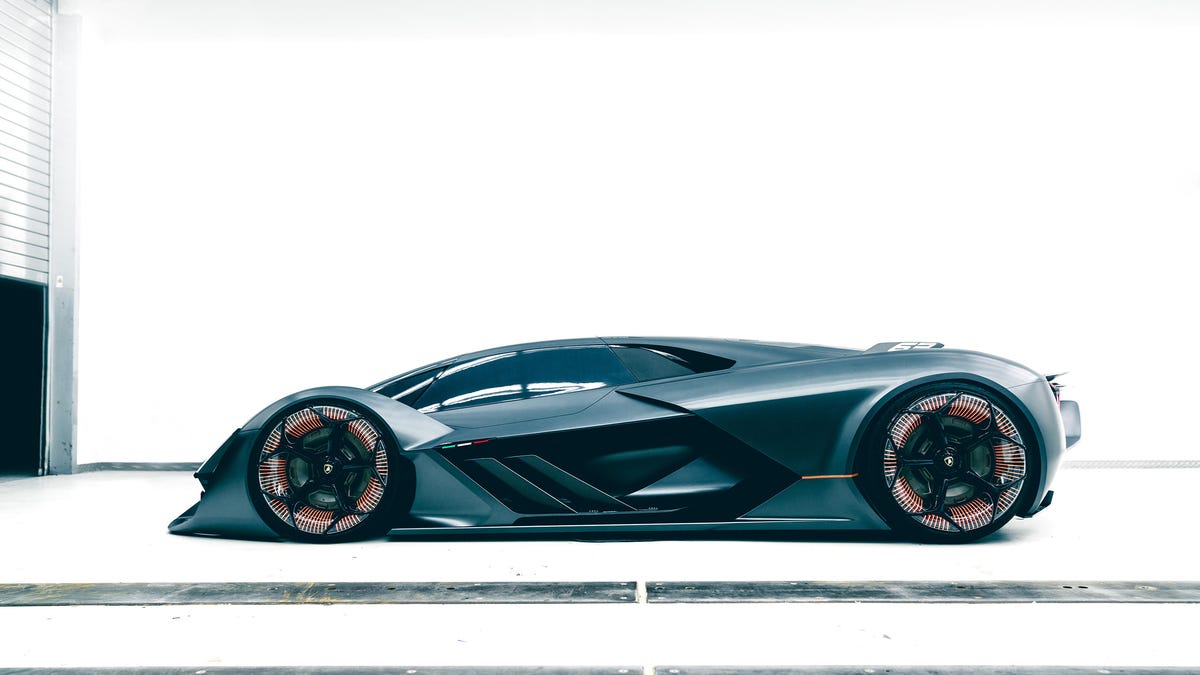Lamborghini won't build an EV if it can't survive the 'Ring
At the Geneva Motor Show, Lamborghini's director of R&D said that while he isn't ruling out EVs, they'll need to meet strict performance benchmarks.

At this year's Geneva Motor Show, the trend has definitely been electric. There are production-ready cars such as Jaguar's I-Pace, near-term concepts such as Porsche's Mission E Cross Turismo and more bonkers machines such as the Rimac Concept Two, all running on nothing but electrons.
Lamborghini's offerings at the show, the Huracan Performante Spyder and the Urus, both burn gasoline in the old-fashioned way, but Maurizio Reggiani, Lamborghini's director of research and development, isn't ruling out an all-electric future -- once the technology passes some significant hurdles.
"It's important to define the parameters that you measure," Reggiani told me at the show, when I asked him about the changing expectations around performance and how the ubiquitous 0-60 time is becoming a metric of questionable value.
"The reason we say [electric] technology is not ready for a super-sport vehicle is because we define our parameters like this," he says. "A full electric Lamborghini must be able to do a speed greater than 300 kph (186 mph) and be able to make three laps, full-speed, at the Nordschleife. If you have a technology that is able to do this, it is welcome at Lamborghini."
Reggiani says that current EVs rely on powertrains designed to "cover a long distance at a low speed," both thanks to their battery chemistry and the components used to extract that power. This is why many current EVs will quickly overheat if repeatedly tasked with high demand. Hitting the magic number of 300, though, will require what Reggiani calls "peak power."
To do this, Lamborghini is working with partners such as MIT to develop new energy storage technologies, including supercapacitors that Reggiani hopes will be able to boost storage capacity by 50 percent over current lithium-ion batteries.
He also says a team is investigating the possibility of "energy storage in the body and in the structure in composite materials," meaning the car itself would be the battery. "It is a dream," said Reggiani, "but MIT takes this task ... If you solve this problem you'll be able to have an all-electric Lamborghini."
And what might that future, all-electric Lambo look like? Look no further than the Terzo Millennio, a vision from MIT of this future super-sports car. When? Your guess is as good as ours, so for now we'll just have to make do with that new Huracan Performante Spyder.

